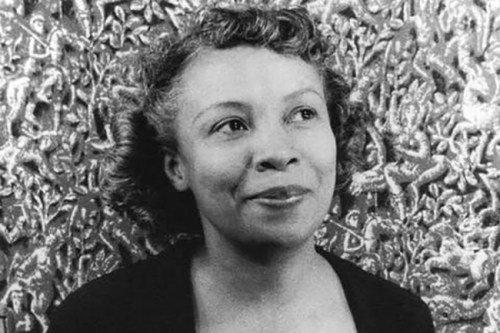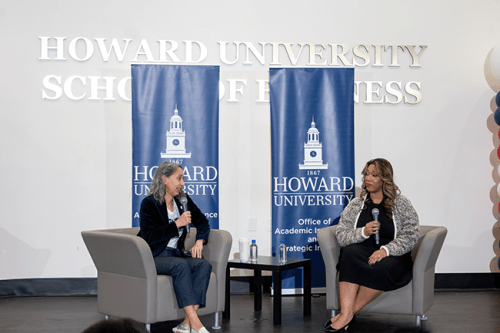WASHINGTON - Today for Bison In The Know, the importance of recording African American family history is explored. In the video (below), the Director of the Public History Program at Howard University, Elizabeth Clark-Lewis, Ph.D., and Digital Production Librarian of the Howard University Libraries and Moorland-Spingarn Research Center, Lopez Matthews, Ph.D. discuss why it is important to orally retrieve family history within the Black community, what to focus on and how to archive this history.
Clark-Lewis, who is also a founder of the African American Historical and Genealogical Society based in Washington, D.C., stressed the importance of documenting memories and more from your family members, especially since the African American community is increasingly impacted by the coronavirus pandemic.
“I think it's important for people to affirm themselves in history,” says Clark-Lewis. “Most importantly, for African Americans. It is so central to our being able to speak back to history and to have history make sense to us. Frequently the records, they attempt to marginalize us, or at least limit our impact on history, particularly in history in the United States, and all history and family history. These kinds of activities give us the opportunity to more firmly, more clearly, and more lucidly show what we did as a community, how as individuals we made changes, and how all of what we did contributed to the richness of the social fabric of the United States.”
Matthews adds that in the archival world there is conversation around how many people mistakenly believe their family history is not important.
“They really don't understand the impact of their family and what their contribution has been to society,” said Matthews. “By documenting it, by remembering it, by writing it down; by interviewing an older family member to hear their stories, to hear their struggles, it really helps you to understand the importance of the contributions of African Americans to history and the importance of and contribution of just regular people to African American history.”
What to Ask During Your Recording of Family History
According to Clark-Lewis, there are five important things to remember when recording your family's history:
- Use a small audio recorder, take notes, and minimize distractions
- Ask them about their upbringing during their youth
- Ask them about their career – what did they do, where did they work, and what made them feel important while doing it
- Ask them about the joys in their life – the fun they had and the people they remember fondly
- Ask them about the blessings they provided before a meal to obtain a fixed response - something they remember
“Ask them to look at pictures with you, and go through these pictures with them, listening to hear, not only what they say about the pictures, but what these pictures tell us about the communities and the people in the pictures,” says Clark-Lewis. “Those are hints that help us get to the essence of people's lives, not just in the past. They also give us great segues as we move to understanding how these people fit into the history and culture in the future.”
How to Archive Your Family History
When you record your family history, be sure to make copies. Also, research archivists and museums that will respect and properly manage your history, which is a fabric of society.
- Research local church records and local newspapers
- Put together a list of your regional, state, and local archives to refer to easily
- Consider the following as additional resources:
- Moorland-Spingarn Research Center at Howard University
- Association for the Study of African American Life and History (ASALH)
- African American Historical and Genealogical Society
- Association of African American Museums
- National Museum of African American History and Culture
###
About Howard University
Founded in 1867, Howard University is a private, research university that is comprised of 13 schools and colleges. Students pursue studies in more than 120 areas leading to undergraduate, graduate and professional degrees. The University operates with a commitment to Excellence in Truth and Service and has produced one Schwarzman Scholar, three Marshall Scholars, four Rhodes Scholars, 11 Truman Scholars, 25 Pickering Fellows and more than 70 Fulbright Scholars. Howard also produces more on-campus African-American Ph.D. recipients than any other university in the United States. For more information on Howard University, visit www.howard.edu
Media Contact: Imani Pope-Johns, Imani.popejohns@howard.edu




